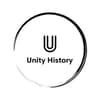Podcast
Questions and Answers
Match Chadwick's recommendations with their descriptions:
Match Chadwick's recommendations with their descriptions:
Sanitation improvements = Increase in public health standards Clean water supply = Essential for preventing disease Drainage systems = Helped manage sewage effectively Medical officers = Responsible for overseeing public health
Match the Public Health Acts with their key features:
Match the Public Health Acts with their key features:
1848 Public Health Act = Introduced due to cholera outbreaks 1875 Public Health Act = Provision of clean water and drainage
Match the impacts of cholera outbreaks with their results:
Match the impacts of cholera outbreaks with their results:
Cholera outbreak of 1865 = Increased awareness of hygiene John Snow's research = Established the link between water and disease Death rate statistics = Shamed towns into taking action Public health reforms = Led to improvements in local living conditions
Match the Great Stink's effects with their outcomes:
Match the Great Stink's effects with their outcomes:
Signup and view all the answers
Match the societal changes due to the Public Health Acts with their impacts:
Match the societal changes due to the Public Health Acts with their impacts:
Signup and view all the answers
Match the reforms initiated by the 1875 Public Health Act with their objectives:
Match the reforms initiated by the 1875 Public Health Act with their objectives:
Signup and view all the answers
Match the consequences of the Great Stink with their developments:
Match the consequences of the Great Stink with their developments:
Signup and view all the answers
Match the historical figures with their contributions related to public health:
Match the historical figures with their contributions related to public health:
Signup and view all the answers
Match the following figures with their contributions to public health:
Match the following figures with their contributions to public health:
Signup and view all the answers
Match the Public Health Acts with their characteristics:
Match the Public Health Acts with their characteristics:
Signup and view all the answers
Match the Public Health Acts with their years of enactment:
Match the Public Health Acts with their years of enactment:
Signup and view all the answers
Match the causes of cholera outbreaks with their sources:
Match the causes of cholera outbreaks with their sources:
Signup and view all the answers
Match the Impact of Cholera Outbreaks with their effects:
Match the Impact of Cholera Outbreaks with their effects:
Signup and view all the answers
Match the events associated with the Great Stink to their outcomes:
Match the events associated with the Great Stink to their outcomes:
Signup and view all the answers
Match the terms related to public health with their definitions:
Match the terms related to public health with their definitions:
Signup and view all the answers
Match the towns' sewage systems with their significance:
Match the towns' sewage systems with their significance:
Signup and view all the answers
Match the actions taken due to cholera to their descriptions:
Match the actions taken due to cholera to their descriptions:
Signup and view all the answers
Match the individuals with their key writings or works on public health:
Match the individuals with their key writings or works on public health:
Signup and view all the answers
Match the sanitation projects with their descriptions:
Match the sanitation projects with their descriptions:
Signup and view all the answers
Match the historical figures or entities with their contributions:
Match the historical figures or entities with their contributions:
Signup and view all the answers
Match the responses to public health issues with their outcomes:
Match the responses to public health issues with their outcomes:
Signup and view all the answers
Match the key figures in public health reform with their legacies:
Match the key figures in public health reform with their legacies:
Signup and view all the answers
Study Notes
Medieval Medicine
- Wars destroyed Roman public health systems and medical libraries.
- Rulers prioritized armies over public health.
- War disrupted trade, making countries poorer.
- Travel became more dangerous, hindering communication between doctors.
- Doctor training was abandoned.
- The Church established universities for medical training.
- Armies employed doctors for surgical experience.
- Rulers used doctors to maintain town sanitation.
- Merchants and scholars disseminated medical knowledge.
Influence of the Christian Church
- The Christian Church gained influence during the Middle Ages.
- Monasteries controlled education, making priests and monks the sole readers.
- Monasteries established medical schools teaching Galen's ideas.
- Some religious texts were banned.
- Monasteries provided clean water and sanitation.
Medieval Hospitals
- Monasteries and monks provided care for the poor in hospitals.
- Hospitals offered hospitality, not always medical care, initially.
The Return of Hippocrates and Galen
- Galen's works were rediscovered.
- Church leaders adopted Galen's ideas, connecting them to Christian beliefs.
- Doctors viewed Galen's work as irrefutable, hindering advancements.
- Medical schools emerged in Western Europe, starting in Salerno, Italy.
- Galen's books were accepted as authoritative medical texts.
Arab Medicine
- Islamic scholars studied Greek (and Galenic) medicine.
- Books combined ideas of Aristotle, Galen, and Hippocrates, spread to Europe.
- Muslims appreciated Galen's work without criticism.
Studying That Suits You
Use AI to generate personalized quizzes and flashcards to suit your learning preferences.
Related Documents
Description
Explore the evolution of medicine during the Medieval period, highlighting the impact of wars on public health and the pivotal role of the Christian Church in medical education. Discover how monasteries contributed to hospitals and sanitation while preserving medical knowledge. This quiz delves into the dynamics between war, medicine, and religion in the Middle Ages.





